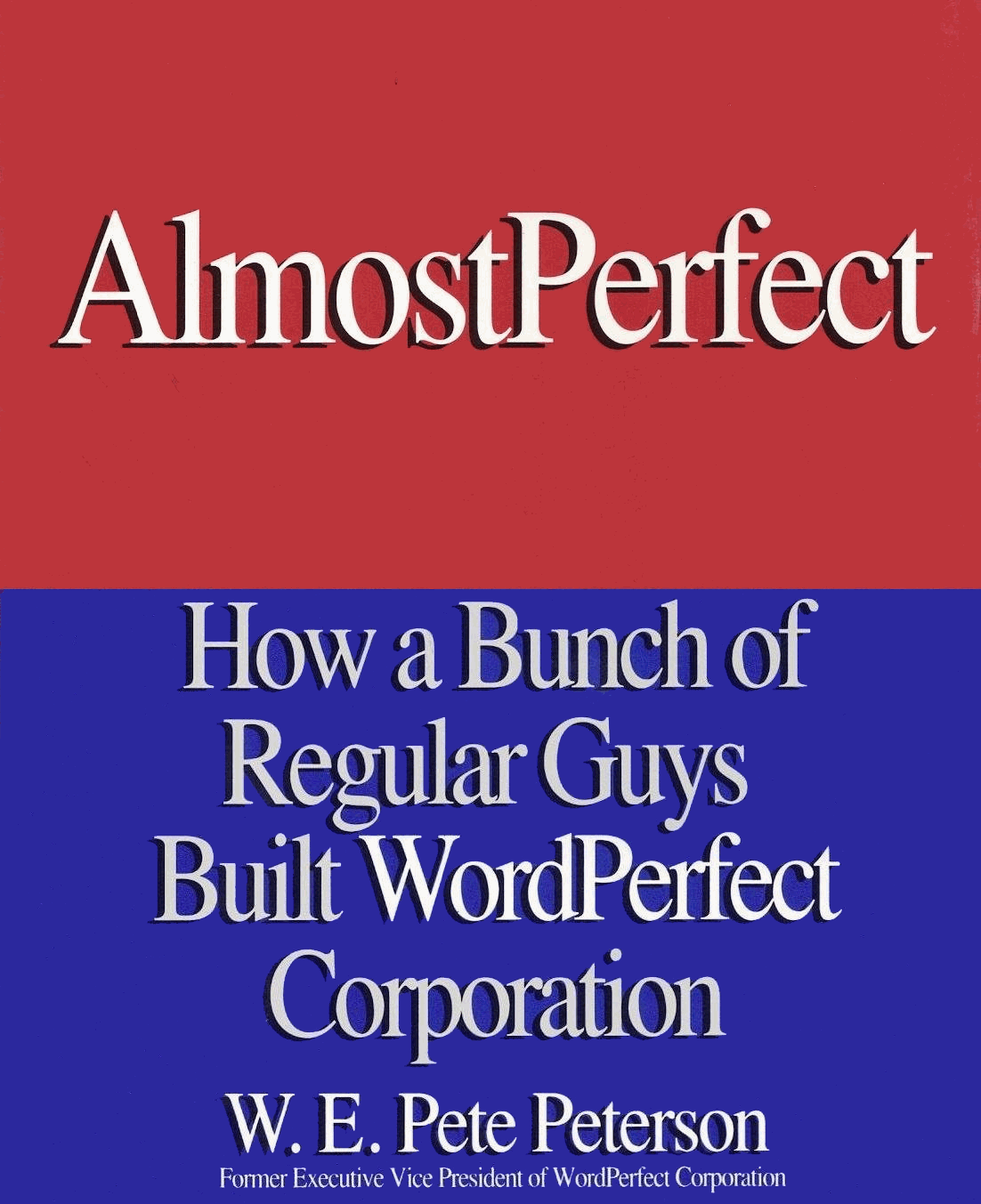Almost Perfect
I’ll always remember WordPerfect as the quintessential white text on blue screen application.

For a period from about 1985 to 1992, WordPerfect was the most popular word processing program in the world on virtually every computing platform. I remember it well; the very concept of word processing was synonymous with WordPerfect.
And now I can’t even recall the last time I encountered a WordPerfect document, much less anyone who still uses WordPerfect. The software is still limping along, barely, under the auspices of Corel corporation, as WordPerfect Office X4. I guess it’s a testament to how quickly things change in the world of software; you can dominate the world for years, only to be relegated to little more than a dimly remembered footnote in computing history a decade later.
Perhaps that’s why the online book Almost Perfect, which documents the rise and fall of WordPerfect, is such a gripping read. I clicked through, read the first chapter, read the second chapter, and... I couldn’t stop reading it!

Some of the story is predictable. WordPerfect, like many other companies at the time, never really made the transition from DOS to Windows. They didn’t just bet on the wrong horse, they institutionalized a software culture that lived and died on character mode assumptions. That, plus an almost fanatical dedication to cross-platform parity – even when the platforms they supported made little business sense – makes the final outcome almost inevitable.
Still, there’s something intriguing about the fledgling SSI corporation. For one thing, the entire business was run in an agile, almost by-the-seat-of-their-pants way. It’s a bit of a David and Goliath story, how they clawed their way to success over so many formidable opponents by simply dedicating themselves to creating an excellent product, and cultivating a vibrant community around that product both inside and outside the company. But perhaps the best part is that the company was run by programmers:
We spent a lot of time in meetings going over what had to be in the product and how things should work. These decisions were made by the programmers, who sometimes had very heated discussions about what was needed. At times the three of us on the Board had to assume the role of referee. Some of the issues were very complicated, so by the time the arguments were finished and a decision was made, I usually had a headache.
It was somewhat unusual for a software company to let the programmers decide the future of its products. We were, however, a company founded and owned by programmers, where programmers were treated with an extra measure of respect. The marketing department was used primarily to sell products once they were developed, and only rarely did it get involved early enough to perform the traditional marketing role of identifying a need and defining a product to fill that need. At times this put us in the position of developing solutions before we identified problems, but it was hard to be too critical of the programmers when the company was so successful. To their credit, the programmers tried very hard to listen to our customers and to those of us in the marketing department. The programmers were smart and thoughtful and very good at protecting the best interests of the company. At times, however, they were prone to manipulate some of the data they received to fit what it was they wanted to do.
The story sort of fizzles out toward the end, as the author, W. E. Pete Peterson, is unceremoniously kicked out of the company just as WordPerfect Corporation begins to lose its hold on the market. Perhaps this is fitting: like WordPerfect itself, he doesn’t go out with a bang, but a whimper.
At any rate, Almost Perfect is fantastic reading. Long out of print, it finds its own audience when self-published on the web. It’s reminiscent of the very best early computer industry tales from one of my favorite books, Accidental Empires.

I was paging through the book again after I was reminded of it, and I found this passage:
Of course, companies don’t have to grow. Electric Pencil, the first word processing program for the Apple II, was the archetype for all word processing packages that followed, but its developer, a former Hollywood screenwriter, just got tired of all the support hassles and finally shut his company down. In 1978, Electric Pencil had 250,000 users. By 1981, it was forgotten.
The book was also made into a documentary, Triumph of the Nerds. I recommend both highly.
I’m not sure if all the lessons from Almost Perfect are relevant today – but some failure patterns are timeless, and I certainly admired the way SSI bootstrapped itself while letting the employees (and more specifically, the programmers) run the company.









